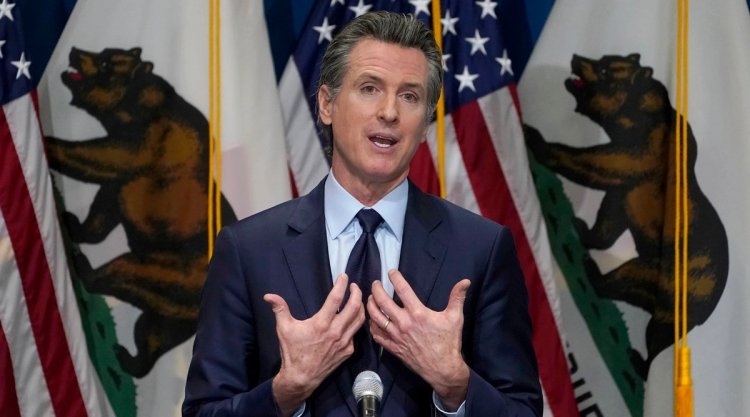The Newsom-Trump dynamic sets up a test case for Democrats
The dynamic between California Governor Gavin Newsom and former President Donald Trump has taken center stage amid one of the most devastating wildfire seasons in American history.

What began as a strained and often contentious relationship has evolved into an uneasy partnership as the two political figures navigate the immediate challenges of disaster response and the long-term complexities of managing aid and recovery.
When President Trump arrived in Los Angeles, Governor Newsom greeted him with an unexpected display of warmth—a bro-hug and a kiss on the cheek for First Lady Melania Trump. This public exchange contrasted sharply with their history of political jabs and mutual criticism. Newsom has often been a vocal opponent of Trump’s policies, while Trump has previously dismissed the California governor with disparaging remarks. Yet, in this moment of crisis, both leaders appeared to set aside their differences to address the needs of a state ravaged by fire.
For Newsom, the stakes couldn’t be higher. California’s wildfires have not only destroyed homes and lives but also reignited debates over water management, forest policies, and emergency preparedness. Critics have pointed to mismanagement, including water shortages and infrastructure failings, while supporters have highlighted Newsom’s tireless efforts on the ground, spending over a dozen days at the fire command center. His every move is under scrutiny—not just from Californians but from a national audience, as Democrats and Republicans alike analyze his leadership style and political strategy.
Trump, meanwhile, continues to use his platform to spread misinformation about the fires, from exaggerated claims about the extent of damage in affluent neighborhoods to unfounded suggestions about water restrictions and infrastructure failures. These statements have added another layer of complexity for Newsom, whose team has been working overtime to combat false narratives and redirect focus toward actionable solutions.
The challenge for Newsom lies in balancing collaboration and confrontation. He must work with Trump to secure federal aid while pushing back against the misinformation and political conditions Trump seeks to impose, including voter ID laws as a prerequisite for disaster assistance. Newsom’s approach—an “open hand, not a closed fist,” as one adviser described it—reflects his attempt to rise above partisan conflict and focus on delivering results for Californians.
This delicate dance is emblematic of a broader trend in American politics. The interplay between Trump’s bombastic style and Newsom’s calculated pragmatism offers a glimpse into the evolving relationship between Democrats and the second Trump era. For Newsom, this moment is not just about managing a crisis but also about defining his political legacy and charting his future on the national stage. Whether he emerges as a unifying leader or a polarizing figure will depend on his ability to navigate the fires—both literal and figurative—that threaten his state and his career.
